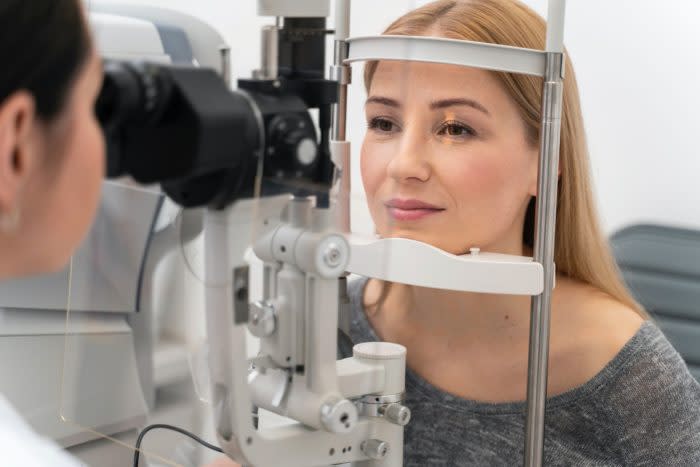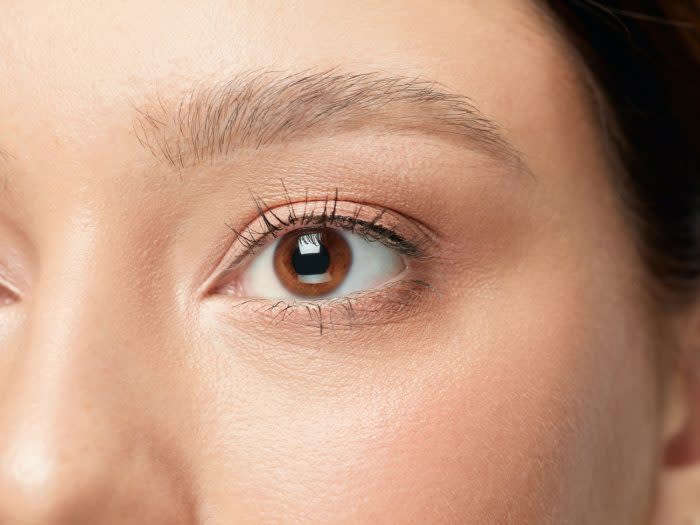Alzheimer’s disease│The eyes are not only the window to the soul, American research has even revealed that the eyes can reflect human cognitive health, and observing the eye tissue can help in the early diagnosis of Alzheimer’s disease.
Written by: Hedy@Medical Inspire Physician. Thinking │ Source:Acta Neuropathologica│Image source: Freepik
Alzheimer’s disease│Can observation of eyes reflect human health? Research reveals that it can help early diagnosis of Alzheimer’s disease!
The researchers collected donated retinas and brains from 86 patients, including those with mild cognitive impairment and Alzheimer’s disease, and observed them for 14 years. Researchers found that compared with people with normal cognitive function, people with Alzheimer’s disease and early cognitive decline have significantly increased amounts of amyloid beta in retinal and brain tissue samples, which is a sign of Alzheimer’s disease. a key indicator of disease. The findings were published in the scientific journal Acta Neuropathologica in February.

80% reduction in microglia
“Our study provides the first in-depth analysis of the protein profile in the human retina and the molecular, cellular and structural effects of Alzheimer’s disease and how they relate to the brain,” Maya Koronyo-Hamaoui, professor of neurosurgery and biomedicine, said in a statement. Corresponding to changes in cognitive function.” The study found that people with cognitive problems had an 80% reduction in microglia cells, which function to repair and maintain other cells, including clearing beta-amyloid in the brain and retina like protein, and some markers of inflammation were found in it.
Observing the progress of the disease through the eyes
Immune cells in large numbers cling to beta-amyloid and other cells responsible for causing inflammation and tissue death, while tissue atrophy and inflammation in peripheral cells at the far end of the retina was the most predictive of cognitive status. Professor Maya Koronyo-Hamaoui emphasized: “The findings of this study may contribute to the development of imaging technology in the future, so that people can diagnose Alzheimer’s disease earlier and more accurately, and non-invasively detect Alzheimer’s disease through the eyes. The progress of the disease can be observed in a revolutionary way.”

Early diagnosis of Alzheimer’s disease
The eyes are the window into the brain, and examination of the back of the eye, optic nerve, and retina can help in the early diagnosis of Alzheimer’s disease.Alzheimer’s prevention neurologist Richard Isaacson said: “Alzheimer’s disease begins in the brain decades before the first symptoms of memory loss appear. can choose morehealthylifestyle, and early control of risk factors such as high blood pressure, high cholesterol, and diabetes.
What is dementia?
Dementia, also known as “Alzheimer’s Disease”, “Dementia” or “Dementia”. Dementia is not normal aging, but the rapid degeneration and death of the patient’s brain cells due to pathological changes, leading to a decline in brain function. Patients will gradually lose their cognitive abilities, including memory, language ability, visual-spatial judgment, executive ability, calculation and decision-making, so that daily life, behavior and emotion are also affected. Alzheimer’s disease is the most common type of cognitive impairment. In Hong Kong, 1 out of 10 people aged 70 or above suffers from dementia, and the prevalence rate over 85 years old is as high as one-third. It is estimated that by 2036, the population of people with dementia in Hong Kong will reach 280,000.

Meet Alzheimer’s!
Alzheimer’s disease is the most common type of dementia, accounting for 50% to 75% of all cases. The cause of this degenerative disease is unknown, there is currently no cure, and the decline of patients is gradual. As brain cells become diseased, abnormal substances are produced in the body, forming “plaques” that disrupt information in the brain and disrupt connections between brain cells. The death of brain cells leads to the loss of certain functions or abilities. The resulting problems include memory loss, taking a long time to complete usual tasks, loss of focus and repetitive speech, etc. When the disease continues to deteriorate to the end, the patient may stay in bed for a long time and need special care.
